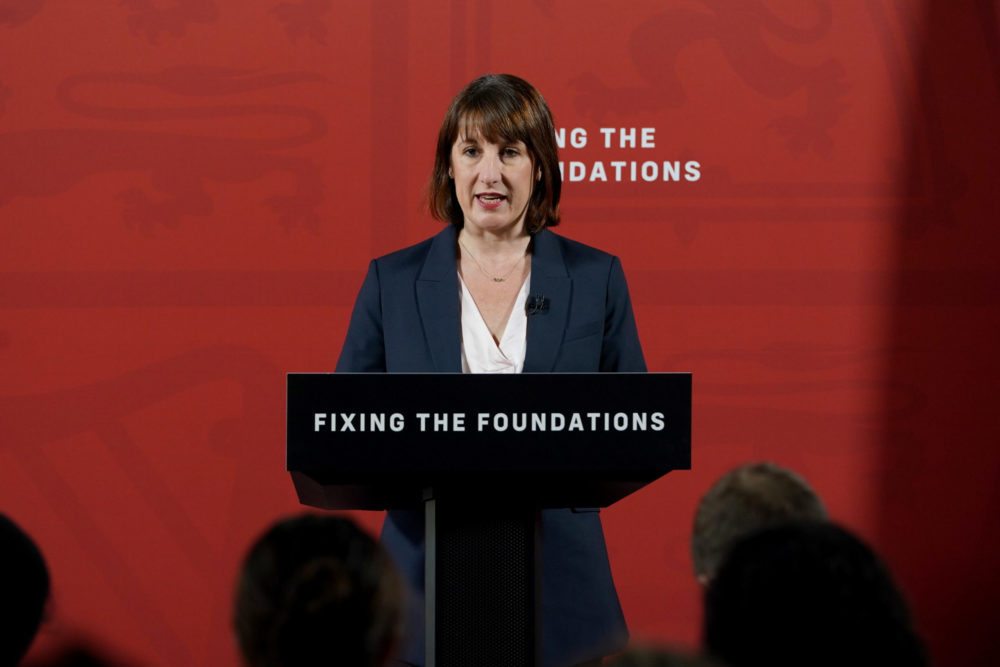Reeves may need tax increases worth £25 billion – IFS

Rachel Reeves may need to raise up to £25 billion from tax increases if she wants to keep spending rising with national income, the Institute for Fiscal Studies (IFS) estimates.
Even if the Chancellor changes the debt rule she inherited from the Tories, this would do “almost nothing” to ease the challenge on public service funding, the IFS said as it released its Green Budget report.
Because of her promise to meet day-to-day spending out of revenues, Ms Reeves would still need to turn to tax rises to avoid spending cuts and meet her pledge to borrow only to invest.
Consequential
IFS director Paul Johnson said Ms Reeves’ first Budget, which she will deliver on October 30, could be “the most consequential since at least 2010”.
The report, funded by the Nuffield Foundation and using economic forecasting by Citi, analysed the challenges facing the Chancellor.
In a scenario modelled by Citi, the report concluded that if there are no cuts to spending outside of public services, Ms Reeves would need a tax rise of £16 billion to remain on course to balance the budget in 2028-29.
This would be on top of the £9 billion tax rise from measures set out in Labour’s manifesto – adding up to almost £25 billion in total.
Pledges
But the party’s pledges not to raise income tax and corporation tax or to increase National Insurance or VAT mean she may struggle to implement a tax rise on that scale.
It would be bigger than the net tax rises from July 1997 and October 2010, which were both around £13-£14 billion.
Sir Keir Starmer did not rule out that he was considering raising employer national insurance contributions and changing borrowing rules when challenged by Rishi Sunak at Prime Minister’s Questions on Wednesday.
The IFS forecast suggests that, even with Labour’s planned £9 billion tax rise implemented, trying to balance the current budget while avoiding cuts to public service spending would put the budget “on a knife edge” and highly sensitive to OBR judgments.
To meet this year’s pay settlements and avoid making future cuts to public services spending, Mr Reeves would need to top up day-to-day spending by some £30 billion above her predecessor’s plans by 2028-29, the IFS estimates.
‘Tough decisions’
The Chancellor has warned ahead of her first Budget on October 30 that there will be “tough decisions” but rejected that the country will see a return to austerity.
She and Sir Keir Starmer have said the Labour Government inherited a £22 billion “black hole” in the public finances from its predecessors.
There has been speculation about how Ms Reeves will raise funds after she ruled out raising taxes on working people.
IFS director Paul Johnson said any changes to capital gains tax would need to be a “careful reform” rather than a simple increase. There is also speculation that Labour could make changes to inheritance tax.
Inherited
The IFS noted that the Chancellor has inherited an “unenviable” public finance situation as taxes are at a historic high and debt is rising, while public services such as prisons, police and local councils are under strain.
Mr Johnson said: “The first Budget of this new administration could be the most consequential since at least 2010.
“The new Chancellor is committed to increasing investment spending, and to funding public services. To do so, she will need to increase taxes, or borrowing, or both.
“Taxes are at an all-time high, and she is tightly constrained by her pledges not to raise the main rates of income tax or corporation tax, or to increase National Insurance or VAT at all.
“The temptation then is to borrow more, perhaps changing the definition of debt targeted by the fiscal rules.
“But, given her pledge to balance the current budget, that would not free up additional resource for day-to-day spending and in any case is not risk-free given the dual deficits – that is, both budget deficit and current account deficit – being run by the UK.”
Benjamin Nabarro, Chief UK Economist at Citi, said there were “cautious reasons for optimism” in the economic forecast and that there is a notable opportunity for structural reform.
“Unfortunately, large outstanding debt stocks and a current account deficit mean the UK faces budget constraints that many other advanced economies don’t. Additional borrowing may therefore have to be used sparingly and reform used creatively.”
Support our Nation today
For the price of a cup of coffee a month you can help us create an independent, not-for-profit, national news service for the people of Wales, by the people of Wales.






Reeves needs to buzz off and rethink her entire stance on black holes and priorities in general.
Jump in the black hole maybes